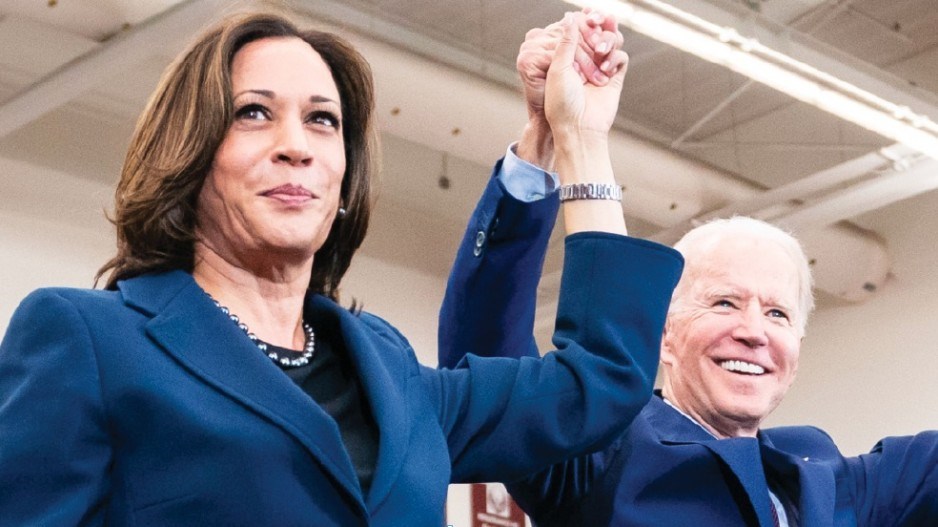While Joe Biden’s ascendency to the U.S. presidency has been long — he first ran for the top office in 1988 — his administration looks poised to act swiftly upon its first 100 days, reversing throngs of policies brought in by the preceding president.
When Biden is sworn in as the next U.S. president Wednesday (January 20), the reverberations of his administration’s ambitions will undoubtedly be felt in Canada.
BIV takes a look at some of the top business issues Canadians should keep their eyes on during the new president’s first 100 days in office.
Pandemic response: Last week Biden unveiled a US$1.9-trillion COVID-19 relief package to help jumpstart the American economy.
He’s also promising to deliver 100 million doses of vaccine within his first 100 days in office and cut stimulus cheques worth US$1,400 each.
A buoyant U.S. economy will bolster Canada’s economic prowess, while an effective effort to vaccinate Americans could get help re-open borders and boost ailing sectors in Canada such as tourism and hospitality.
Corporate taxes: The new administration has pledged to increase corporate tax rates to 28%.
The rollback from the Trump administration’s lower rates could sway decision-making in Canada: Will some jurisdictions keep corporate tax rates as is to remain competitive or will some feel more leeway to raise their own rates, knowing rates for corporate America are also going up?
Trade: Outgoing U.S. President Donald Trump “menaced specific industries” by unleashing tariffs throughout his four-year term, according to a note from BMO economists.
Steel and aluminum were particularly hard hit in Canada, leading to retaliatory measures targeting American industries.
Will Biden bring back a semblance of normal trade relations between the countries? Canada, the U.S. and Mexico negotiated a new free trade deal (USMCA) during Trump’s only term — but the BMO economists believe “Biden’s Buy American policy would weigh on many sectors” rather than the specific ones Trump targeted.
Despite the lack of predictability over the last four years, trade has the potential to flatten under a Biden administration.
Keystone XL: Various media reports indicate the new president will rescind the permit for the pipeline expansion upon his first day in office.
The nixing of the expansion project has the potential to slow down Alberta’s — and by extension, Canada’s — economic recovery.
TC Energy Corp. (TSX: TRP) has promised to achieve net zero emissions across project operations and has committed to operating the system via renewable energy sources by 2030.
But will those measures be enough to persuade the new administration?
“We are speaking with the highest levels of the incoming administration to promote our arguments in support of this project once again and I trust that we will be heard and that our arguments will be considered,” Prime Minister Justin Trudeau said during a media briefing Tuesday (January 19).
Immigration policy: Between bans on travellers from some Muslim-majority countries, separations of parents and their children at the U.S.-Mexico border and a ceiling placed on H-1B visas, entry into the U.S. has become notably more arduous for many foreign nationals.
Canada’s own immigration policies — perhaps the Western world’s most “aggressive,” along with Australia and New Zealand, according to Boughton Law immigration lawyer Bruce Harwood – have been a driving catalyst for American firms launching satellite offices to their north in a bid to attract global talent.
Canada has also been at work enticing foreign students and top global talent amid administrative roadblocks in the U.S.
“Most U.S. employers are very excited, frankly,” said Dick Burke, CEO of Chicago-based immigration services firm Envoy Global Inc., referring to the prospect of the Biden administration to usher in more progressive policies to attract top talent.
“They expect more certainty, more predictability.”
He does not anticipate Canada’s competitive edge growing blunt, but rather, that the U.S. will sharpen its own policies in the near term.




